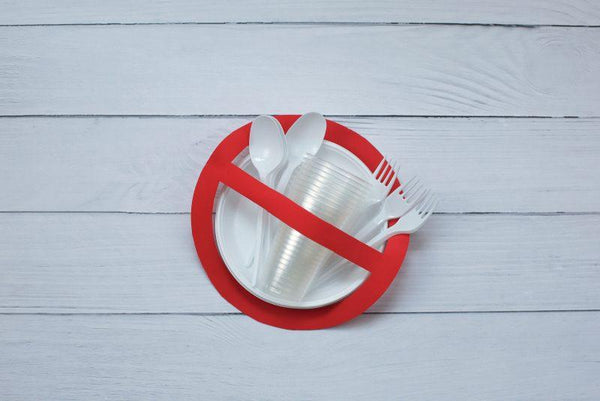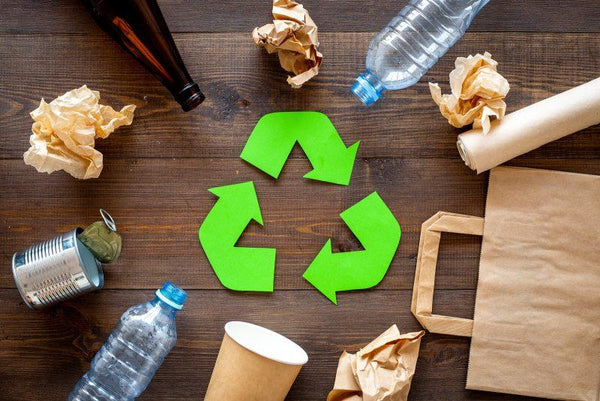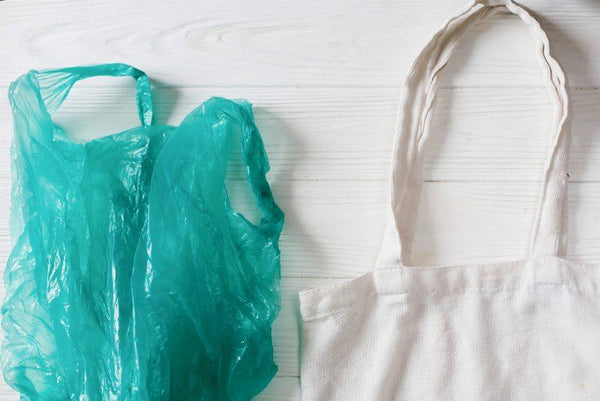
When you think of plastic bricks, fond memories of playing with Legos might come to mind. But for New Zealander inventor and engineer Peter Lewis and ByFusion, shaping plastic into blocks is more than child’s play.
As more people and businesses become aware of the dangers of climate change, recycling, sustainability, and green technology has never been more in-demand. Outside of incinerating our trash or trying to find clever ways to bury and hide it, finding ways to reduce and reuse reclaimable materials like glass, metals, and plastic has become big business. Waste, after all, can become a useful renewable resource — and there seems to be no shortage of it.
Plastics, born of fossil fuels and left to decompose for decades as the environment struggles to break them down, are a major contributor to our waste crisis. According to the World Economic Forum’s study published earlier this year, approximately 8 million tons of plastic finds its way into the ocean every year, the “equivalent to dumping the contents of one garbage truck into the ocean every minute.” This rate is set to double once by 2030 and again by 2050 if our habits don’t change.
If those numbers don’t disgust you enough, it doesn’t won’t help to know that there’s already 150 million tons of plastic floating in our oceans. At the rate we’re going, there will be “one ton of plastic for every three tons of fish by 2025;” by 2050, the amount of seaborne plastic will outweigh every fish left combined. This problem isn’t going to go away on its own.
Unlike lemons, one cannot simply make trashanade. One can certainly turn it into something else.
Lewis and ByFusion have been working on a solution for years that doesn’t just eliminate plastic waste, but upcycle it into something useful. Enter RePlast: an eco-friendly building material capable of “processing plastic collected from our oceans and coastlines and diverting millions of tons of plastics from landfills.”
While only three of the seven types of commercial plastics are most commonly recycled (the other four are either too toxic or too costly to process effectively), ByFusion’s process handles all types, whether individual or mixed, cleaned or contaminated. And with the platform’s easy transport (its modular design is self-contained and fits the size of a standard shipping container), ByFusion’s machines can be deployed anywhere easily, converting plastic waste into sturdy bricks for construction projects of any scale.
Despite being made of old plastic bottles and containers, RePlast blocks are surprisingly sturdy. Ranging from 8- to 27-pounds and in a variety of shapes and colors, RePlast has better thermal and sound insulation than conventional concrete blocks with no need for glue or adhesive. The process to create them is 100% carbon neutral and non-toxic, as well as boasting 95% lower Greenhouse Gas Emissions compared to concrete too.
While not naturally flame retardant (RePlast flammability is compared to Trex lumber), additives can be thrown into the mix to boost resistance. Given its standard properties, however, combined with its contribution to U.S. Green Building Council LEED certifications, these plastic bricks are an effective, inexpensive means to create fit-for-purpose building material.
The machine itself is currently powered by propane or electricity, though the developers are “currently in talks with the innovative, emerging solar companies to create a solar-powered” version. While the company and its supporters have recently finished a round of crowdfunding, ByFusion plans on releasing the first machines for purchase by May 2017 in the United States. With over 32 million tons of plastic wasted a year in the U.S. alone, we sure could use something like this.

The European Parliament voted for a complete ban on a range of single-use plastic waste across the union in a bid to stop pollution of the oceans. The proposal also called for a reduction in single-use plastic waste for food and drink containers, including plastic cups.

China has long been treated as our planet’s repository for plastic waste. The nation has accepted 45% of the world's total plastic recycling since reporting to the United Nations Comtrade Database began in 1992.

Even before plastic straw bans grew trendy, California was at the forefront of using less plastic and promoting more sustainable living. California pioneered a statewide ban on plastics beginning in 2016, when the state became the first in the U.S. to ban most stores from providing customers with single-use plastic bags, following a successful referendum. [...]